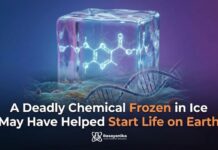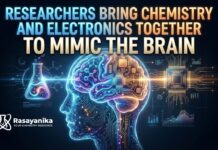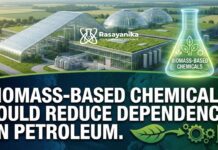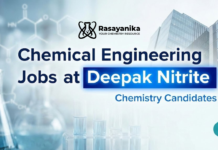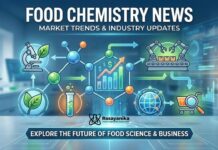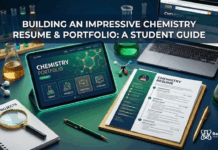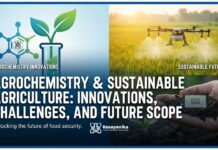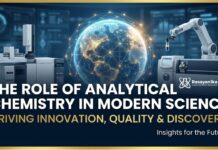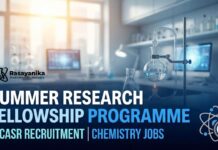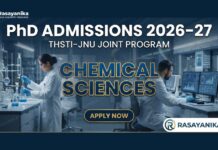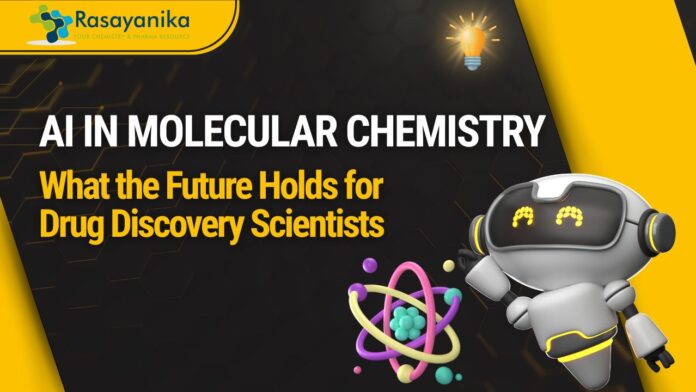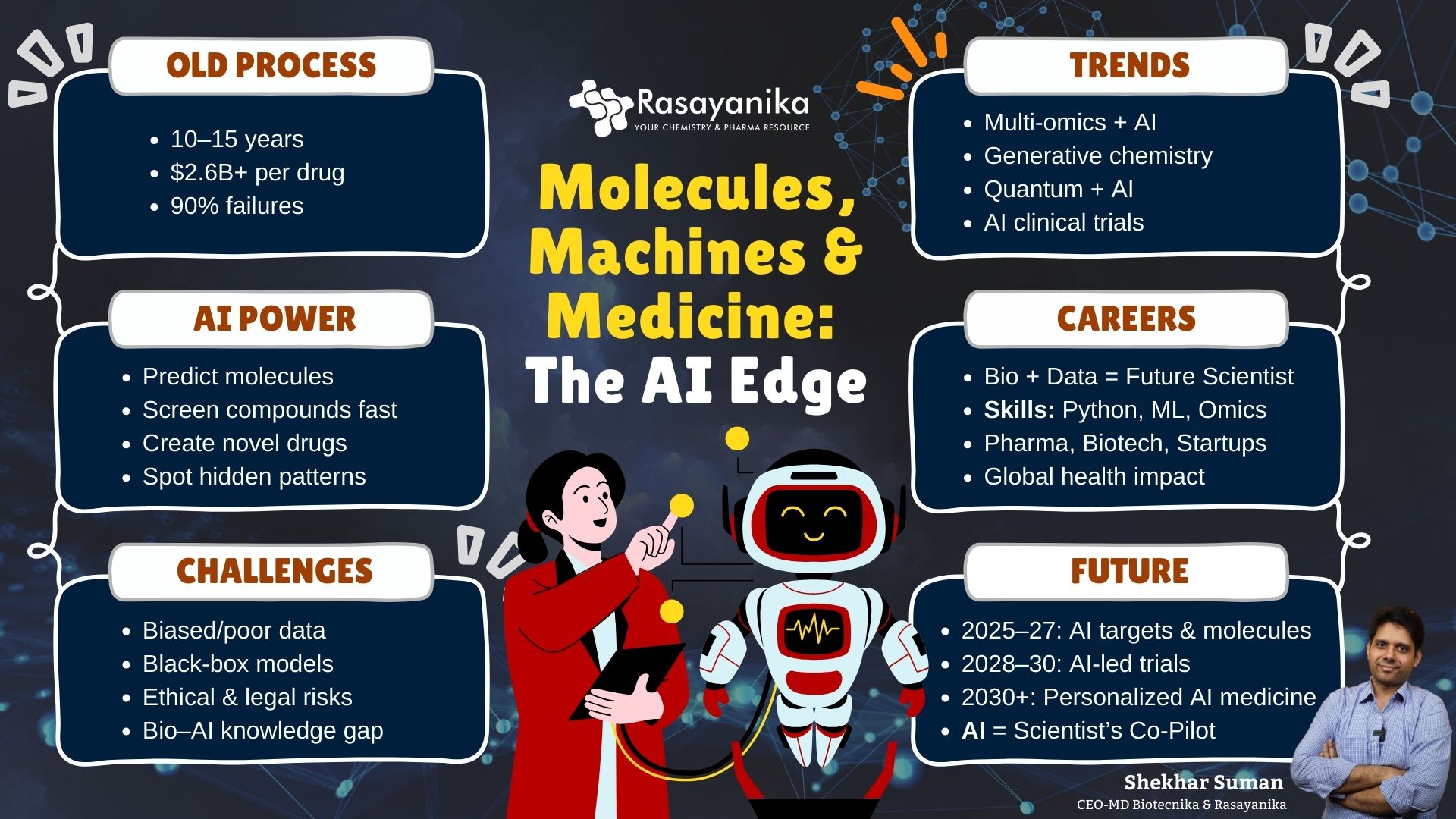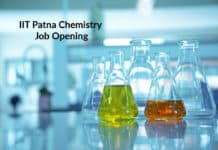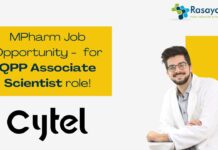AI in Molecular Chemistry: What the Future Holds for Drug Discovery Scientists?
Imagine a future world where machines can predict the effectiveness of Drugs and products even before they are developed or manufactured. In that future, R&D (Research & Development) laboratories operate faster, with minimal failure rates, and cures arrive sooner. AI-powered Drug Discovery and AI in Molecular Chemistry careers are turning into a reality soon. But are we ready to harness and be part of this revolution, or consider the risk of being left behind?
For ages, Scientists and Researchers have been battling high expenditures, numerous dead ends, and long timelines in the search for novel Medicines and products. It has led to the Pharmaceutical industry’s biggest challenges, and AI’s entry into Molecular Chemistry is quite transformative.
Drug discovery is one of the most complex Scientific endeavors in the Pharmaceutical industry. Launching a novel Drug or product to the market can cost between $1 billion and $2.6 billion, as well as take up to 10 to 15 years, depending on the Clinical Trial requirements and therapeutic area. Even with huge investments and work, nearly 90% of Drug compounds/products fail during the Clinical Trials phases, often due to unforeseen safety issues or insufficient efficacy. Conventional Molecular Chemistry struggles to navigate the enormous Chemical environments, meet urgent global Health needs, as well as understand intricate Biological systems in an efficient manner worldwide.
Today, AI (Artificial Intelligence) is revolutionizing the Pharmaceutical landscape. It acts as a powerful collaborator and provider, enabling Researchers to predict Molecular interactions, analyze massive datasets, accelerate the discovery process, and design innovative Drug compounds. And it is not replacing the position of Scientists and Researchers, but aiding them in their innovations. For Drug Discovery Scientists, exploring an AI in Molecular Chemistry career offers new horizons for impact, precision, and creativity. It paves the path towards an integrated future where Machine intelligence and human expertise collaborate and make the world a better place to live in. What once took several years of trial & error is now being accelerated by ML (Machine Learning) and AI’s intelligent algorithms, which have the capacity to uncover hidden patterns in Chemistry and Biology. So, what’s the result of all of this? It is a bright future where therapeutics and treatments reach patients more precisely, affordably, and faster than ever.
The Conventional Bottleneck of Drug Discovery
Drug Discovery has always been a complex and intricate process. Researchers and Scientists spend years sifting through huge Chemical libraries, experimenting on thousands of molecules and compounds, but many still fail in or before reaching Clinical Trial phases. Drug Discovery has been a costly, high-risk, as well as time-consuming process worldwide. Scientists and Researchers face enormous Chemical spaces, lengthy development timelines, and high attrition rates. Understanding these limitations provides context for the transformative role of AI.
Major challenges are:
- High attrition: Only around 1 in 10,000 Drug compounds screened become approved Drugs for the world market.
- Massive Chemical space: Approx. 10⁶⁰ possible Drug-like molecules/compounds exist, far exceeding the capacity of conventional experimental screening worldwide.
- Long timelines: Developing a novel Drug from preclinical studies to market approval generally takes around 12 years or more in total.
- High costs: Research, Clinical testing, as well as development collectively cost $1–$ 2.6 billion per successful Drug (according to Tufts CSDD and Deloitte, 2020).
These challenges call for innovative and data-driven approaches that complement human expertise and enable more efficient Drug Discovery processes worldwide. “This is exactly why pursuing an AI in Molecular Chemistry career is becoming increasingly valuable, as it equips future Scientists to overcome these limitations with innovative Drug Development approaches.
How AI is Transforming Molecular Chemistry
AI is transforming Molecular Chemistry (and what it means for your AI in Molecular Chemistry career) by enhancing predictive accuracy, rational decision-making, as well as speed of development and manufacturing. From Molecular design to multi-omics analysis and virtual screening, AI aids Scientists and researchers in making data-informed decisions.
- Personalized Medicine
AI aids patient-specific therapeutics by integrating Genetic, Molecular, and Clinical data to inform Personalized Treatment plans for patients. A US-based company, Tempus, uses AI to match Cancer patients with the most effective Medications and treatments based on the patient’s Molecular profiles, thereby minimizing the need for trial-and-error therapeutics.
- Smarter Molecular Design
Advanced AI models analyze extensive Biological and Chemical data to predict molecule-target interactions. It thereby aids Scientists and Researchers in designing drug compounds more efficiently and rationally, rather than relying on conventional trial-and-error methods. For Example, a company, Insilico Medicine, developed an AI-designed Drug candidate for Idiopathic Pulmonary Fibrosis disease. That Drug reached the Phase I stage of Clinical Trials in just 18 months, compared to the 4 to 6 years conventionally required for early-stage Drug Discovery.
- High-Throughput Insights & Virtual Screening
Advanced AI models enable the virtual screening of billions of Drug compounds, predicting which Drug molecules are most likely to succeed before laboratory experiments and processes.
|
Aspect |
Conventional Screening
|
AI-Driven Screening
|
|
Duration |
Months to Years
|
Days to Weeks |
|
Hit Rate |
Less than 1%
|
2 to 5 times higher in pilot studies* |
|
Expeneses |
Very high
|
Significantly Less |
|
Compounds
|
Thousands to Millions
|
Billions (virtual) |
This is according to Nature Biotechnology, 2023
This advanced approach enables Scientists and Researchers to focus on the most promising Drug candidates, ultimately accelerating Drug Discovery timelines worldwide.
- Biological Knowledge
AI enables the analysis and integration of Multi-Omics data, encompassing Proteomics, Metabolomics, as well as Genomics, to decipher disease mechanisms and pathways. DeepMind’s AlphaFold has successfully predicted protein structures with near-atomic accuracy, thereby providing a strong foundation for targeted Drug design and Development.
Trends in AI-Powered Drug Discovery & Development
From generative AI models designing novel Drug compounds to digital twins simulating human Biology, the emerging trends are expanding. Pharmaceutical companies are investing heavily in AI partnerships, while Biopharmaceutical startups are developing novel platforms that reimagine the possibilities in biomedicine. Hence, these advancements are shaping a new global Pharmaceutical standard for how Drugs are discovered and developed worldwide.
AI integration is generating new standards in Drug Discovery & Development:
- Generative Chemistry: Generative AI can propose novel molecules from scratch in R&D. In the year 2023, Researchers designed new Antibiotic Drug candidates effective against Drug-resistant Bacteria, thereby opening Chemical opportunities previously inaccessible to humans.
- Autonomous Research Laboratories: AI-guided Robotic systems can operate thousands of Chemical experiments weekly. The University of Liverpool showcased a Robot Chemist, which completed around 1,000 experiments in a single week. On the other hand, that work would have taken months for human teams to accomplish on their own.
- Ethical Integration & Regulatory Standards
Agencies such as the EMA (European Medicines Agency) and the FDA (Food and Drug Administration) are developing guidelines for AI-aided Drug Development. Validation, transparency, and explainability are essential for ensuring Regulatory Compliance and maintaining trust. - Biologics and ADMET Prediction
AI applications are expanding to Antibodies, ADMET prediction (Absorption, Distribution, Metabolism, Excretion, Toxicity), as well as Biologics departments. Companies such as Generate BioMedicines and Absci design antibodies with improved stability as well as binding. - Drug Repurposing at Scale
AI models accelerate repurposing of Drugs for emerging Diseases and Disorders. During the COVID-19 pandemic, AI-ML tools helped prioritize Drugs such as Remdesivir (developed by Gilead Sciences) for SARS-CoV-2 testing and vaccine development.
With these emerging trends shaping global Pharmaceutical standards, Scientists and professionals who choose an AI in Molecular Chemistry career will find themselves at the forefront of Scientific innovations.
Career Opportunities for Drug Discovery Scientists
For Scientists and Researchers, an AI in Molecular Chemistry career means becoming part of an interdisciplinary future where biology, chemistry, and data science converge. This advancement opens unprecedented career Opportunities. Chemists who understand Algorithms, Data Scientists who can interpret Biological Data, as well as Biologists who can code, are highly in demand worldwide. This futuristic convergence of skills means that the next generation of leaders in Drug Discovery will come from interdisciplinary sectors. Although there are numerous opportunities, there are also some challenges. AI in Molecular Chemistry is creating incredible opportunities for Scientists and Researchers, such as:
- Interdisciplinary Collaboration: Data Science, Chemistry, as well as Biology skills are increasingly intersecting.
- Enhanced Creativity: Automation aids Researchers and helps them to focus on hypothesis-driven innovations.
- Greater Societal Impact: Fast innovative discovery enables therapeutics to reach patients more quickly worldwide.
Challenges
While promising, AI tools and models face challenges such as bias in algorithms, Data quality, the need for interpretable models, and Regulatory uncertainty. Over-dependence on AI or Computational predictions without Biological validation is risky. However, challenges are not setbacks, but rather signposts guiding us toward stronger collaborations, more ethical innovations, as well as better practices.
Despite AI’s promise, challenges remain:
-
- Interpretability: “Black-box” AI models require validation for trust.
- Data Quality: Poor or biased data can compromise predictions.
- Ethics and Trust: Patient safety and Regulatory compliance remain critical.
- Infrastructure Gaps: High Computational requirements may limit adoption in some laboratories.
Navigating these challenges is part of what makes an AI in Molecular Chemistry career both gratifying and demanding. Overcoming these challenges requires Scientists to ensure transparency, accuracy, and responsible AI use.
Roadmap: AI in Drug Discovery
The future roadmap involves hybrid approaches, combining human intuition with machine intelligence, industry with Academia, and Regulation with innovation. As AI tools mature, they won’t replace Scientists; they will empower them to think bigger, test smarter, and innovate faster.
|
Focus Area |
Current Capabilities (2025) | Opportunities |
Key Examples |
|
Molecular Design |
Predict molecule-target interactions | Rational design; prioritize candidates |
Insilico Medicine |
|
Virtual Screening |
Evaluate billions of compounds virtually |
Reduce cost and accelerate discovery |
Pilot studies, 2–5x higher hit rates |
|
Protein Structure |
High-accuracy predictions | Targeted therapy design |
AlphaFold |
|
Generative Chemistry |
Create novel molecules | Explore new Chemical spaces |
AI-designed Antibiotics, 2023 |
|
Drug Repurposing |
Re-prioritize existing Drugs | Rapid response to emergent diseases |
Remdesivir AI-assisted testing |
|
Autonomous Labs |
Robotic high-throughput experiments | Scale early Research |
University of Liverpool robot chemist |
|
Biologics / ADMET |
Optimize antibodies; predict toxicity | Reduce late-stage failures |
Absci, Generate BioMedicines |
|
Personalized Medicine |
Integrate Clinical/Genetic data | Tailored therapies |
Tempus AI system |
|
Regulatory & Ethics |
Ensure compliance | Maintain trust |
FDA/EMA AI guidance |
Inspiring the Next Generation
The future of Drug Discovery and the promise of an AI in Molecular Chemistry lies at the intersection of Chemistry and AI. Students and early-career Scientists must become fluent in both disciplines. Those who embrace AI as a creative and analytical partner will drive tomorrow’s breakthroughs in Medicine, saving lives and shaping the future of global Healthcare.
Conclusion: Leading the Future with Intelligence
AI is becoming an active partner in innovation and the Pharmaceutical sector. By combining Computational power as well as human creativity, Drug Discovery becomes more impactful, faster, as well as more precise. Scientists and Researchers who embrace this advancement will help shape a better future, where medications reach patients more quickly. The complex Diseases and Disorders are better understood, analyzed, and interpreted. And the potential of Medicine and Pharmaceuticals expands beyond imagination globally.
Explore AI tools in your Research areas, embrace collaboration between machines and humans, as well as pursue interdisciplinary learning. The next phase of Molecular Chemistry belongs to those who are willing to lead at this intersection of Humans and Machines. AI in Drug Discovery is reshaping modern Pharmaceuticals and Healthcare sectors.
For Researchers, industry professionals, as well as students, building an AI in Molecular Chemistry career is not just about adapting, but is the moment to learn and lead. The R&D laboratories of the future won’t just be filled with microscopes and test tubes; they will be powered by creativity, data, as well as algorithms. The question is not whether AI will change Drug Discovery; it already is. The real question is, how ready are we to adapt and lead?


